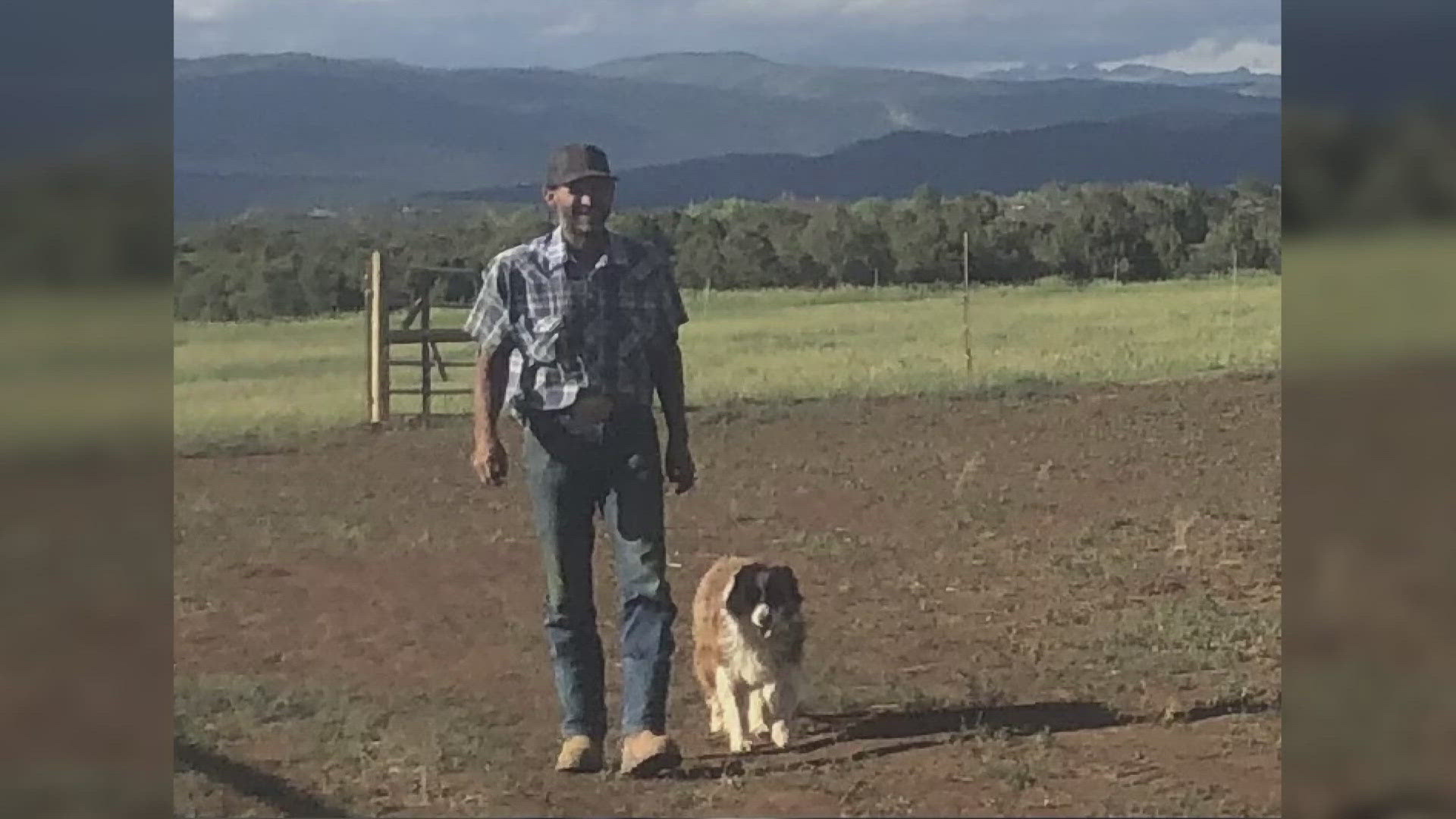DURANGO, Colo. — On the mesa of Durango, where thunderstorms are part of daily life, a rancher's routine was shattered by a rare but life-threatening event.
J.D. Corely, 59, a lifelong ranch hand, was struck by lightning on Sept. 17 while working on his close friend Thad Trujillo’s ranch. Weeks later, Corely remains hospitalized in Aurora, fighting to regain his memory.
“In an area in the mountains like this, thunderstorms are a way of life,” Trujillo said. “You just never think it's going to happen to you or somebody you know.”
For years, Trujillo viewed the odds of a lightning strike as akin to winning the lottery — unlikely to happen. But that perspective changed when Corely became a lightning victim.
That day, Corely had come to help Trujillo check the ranch after a major storm.
"I heard the lightning strike. I looked outside, and there were blue skies above, but I knew it had hit close," Trujillo said as he recalled the huge bang sound it made.
When Corely was nowhere to be found, Trujillo's concern grew. The thought of Corely getting struck still hadn't crossed his mind until he saw a figure lying in the back field.
What Trujillo found was chilling.
"I immediately knew… I think that’s J.D. out there. He was facedown. His clothes were in tatters, his jeans shredded. He was bleeding from an ear, and the hair on his chest and legs was singed," Trujillo said, describing the scene as surreal.
Fragments of Corely’s clothes were scattered up to 40 feet away, a sign of how forceful the strike was. That day he was airlifted to UCHealth burn center at the Anschutz Medical Campus, where he spent a week in the ICU. His recovery has now been complicated by memory loss.
“In the last few days, he's had trouble remembering things, not realizing where he’s at... why he's there,” Trujillo said. “It’s really day-to-day still.”
Dr. Arek Wiktor, the director of the UCHealth Burn and Frostbite Center, said they see five to eight lightning strike patients per year. He said Corely’s experience is common, with patients experiencing delayed effects.
"It’s like a short circuit in your computer, it's going to be a little glitchy. The same thing can happen with your body… It can be delayed, which means people can have normal memory, normal emotions, normal motivations, and then later it develops that they start feeling more fatigued, have poor concentration, have poor memory,” said Dr. Wiktor.
According to Dr. Wiktor, other delayed effects include tingling and weakness in the hands and legs, or even PTSD as they process the trauma.
"I guarantee he wants to come back, grab his dog and get back to work on the ranch. That’s what he lives for," Trujillo said. "J.D. is a tough guy. He’s a cowboy — that's what his family calls him — and his dog is Cowgirl. They were inseparable."
That day, Corely’s dog had also been struck by the lightning. Trujillo said she could barely move the next morning due to soreness. Though Cowgirl is healing, she still waits for Corely to return.
Corely’s recovery remains uncertain, but for those who know him, his strength and connection to the ranch give them hope.
“He’ll be back,” Trujillo said.
In the aftermath of the strike, Trujillo is now raising money for Corely’s recovery: Fundraiser by Thad Trujillo : Support JD's Recovery After Lightning Strike (gofundme.com). Trujillo is also determined to raise awareness about lightning safety.
Here are a few important pieces of information about lightning safety from Dr. Wiktor:
30-second rule: If you hear thunder within 30 seconds of seeing lightning, you're too close. Seek shelter immediately, preferably in a building with electrical wiring or plumbing, or inside a vehicle.
For those caught in an open field without shelter, Dr. Wiktor advises making yourself small. Crouch down with your feet and hands together to minimize your risk. Don’t lie flat or stand up with your legs apart — it increases your chances of injury.
Lightning strikes don’t always hit the tallest object, and contrary to myth, touching a lightning victim is safe.
Perform CPR if a lightning strike victim is not breathing. “Early CPR can save lives," said Dr. Wiktor.

